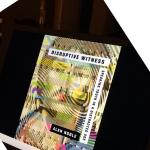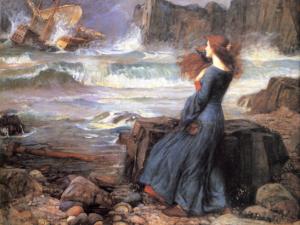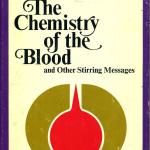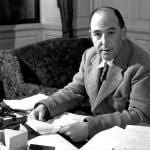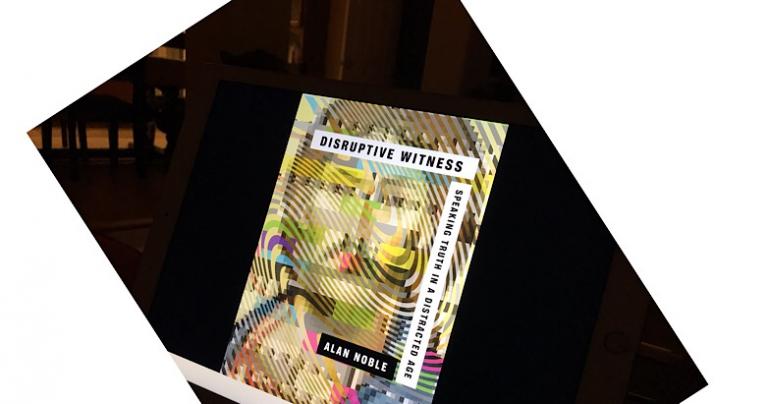 We are distracting ourselves, not to death, that would be more interesting, but to shallowness. We consume ideas like a humming bird, flitting from idea to idea, but we face situations that require more than we can get in a fly-by.
We are distracting ourselves, not to death, that would be more interesting, but to shallowness. We consume ideas like a humming bird, flitting from idea to idea, but we face situations that require more than we can get in a fly-by.
Eventually, hard problems come and those cannot be solved by slogans, memes, or mic drop answers. At the moment when depth is required, the shallow are insufficient: sans thought, sans experience, sans passion, sans everything.
If we take some of this and a bit of that, there will not be enough of anything to provide answers, comfort, or motivation. So Professor Alan Noble argues in his excellent book Disruptive Witness. Christians have a hard time talking to anyone, because like everyone, we do not have much to say and an inability to stop and listen.
Against this, Noble calls for time: time for deeper connections, more profound experiences, and an abundant spiritual life. This requires unplugging, a great depth of worship, and allowing ourselves to remove the buffers from reality.
Noble sums up:
The challenge facing us today is not so much the temptation to be relevant to the point that we lose the gospel, but the tendency to unknowingly accept a secular understanding of our faith while believing that we are boldly declaring the gospel. Virtually every institution in our society insists that we determine the shape of our lives by personally selecting from an ever-increasing set of patchwork ideologies. Regrettably, the Western church has often done a poor job of resisting this practice. The result has been that the church often sees itself as one worldview competing in the worldview marketplace, the rules and regulations of which are determined by the market, not their adherence to truth. Thus, we run the risk of not only damaging our witness to the watching world, but doing so without knowing it.
This is vital. We must live in the light of reality: physical and metaphysical. Too many of us choose our understanding of reality based on the “allowable” questions either in our Christian sub-culture or those asked by a tiny mostly-white secular minority.
We live in a God saturated cosmos, but cripple ourselves by ignoring the truth. We live in a world of matter and energy that will end our physical life. We ignore that at our peril.
Noble is right to point us beyond ourselves. If I disagree with him, the quibble is that he still is bound by the tyranny of the living. I live (as most humans have) in a world where the “dead” excercise as much agency as the “living” through their prayers in the great cloud of witnesses. Those now in the body are a tiny minority of those who are and we must count their votes.
Any community cut off from hundreds of years of continuity (conservative or liberal, Christian or atheistic) will grow weird and wrong. We need music from the people, not “pop” music that is music by producers to be consumed just now. We need stories from the people, smoothed out by centuries of folks telling the tales. If the liturgy is the work of the people over centuries, then popular culture, the one we inhabit, should be the work of the folk over centuries.
Our consumerist culture of immediacy is drying us up, a barren desert for folk culture.
Noble says:
When we understand how most modern discourse happens in a buffered space that inoculates all parties against deep change, and that we tend to move from discourse to discourse without time for reflection, we can begin to see how some practices in the modern church actually contribute to this problem by offering only a thin version of the faith in an antagonistic form.
Amen and amen. Yet the most buffered community of all may be the academy where deep dissent, the sort Noble provides, is not even heard long enough to be refuted. If Jerry Falwell Jr. is buffered and God knows he is, then the rest of us in higher eduction can be just as buffered just within our community instead of within his.
Noble is bold enough to say we are not secularizing. Millions of Americans, and most of the world, look at secularism and demure, yet . . . Yet. . . We may be poisoned without knowing. We may limit our options to those we are given: enslaved by masters who will not let us question at the deepest level their assumptions.
Professor Noble refuses this equation. He is not right or left: merely Christian, thank God. This is the most radical position of all.
The trends in evangelicalism reveal just how strong this inertia has been in the church, helping to produce megachurches that trade on emotive, self-help faith and passionate believers who find their identity in Christian subculture rather than Christ.
The low church has the resources to avoid this error, but must find them in her own history, not in the riches of groups like Orthodoxy or the tatterdemalion Romans. To be real, the one thing our shallow age abhors, is to be connected with organic community over history. There is such a low church tradition, or there was when I was a boy. Professor Noble, if he is to remain as he is, must find it, revive it, and calmly carry on. Any man who can write this paragraph is an ally:
It is this kind of witness that we are called to bear in the world today—a witness that defies secular expectation and explanation, that unsettles our neighbors from their technological/ consumerist stupor, and that gambles everything on the existence and goodness of a transcendent (and immanent!) God, whose sacrificial love for us compels us to love in return.
I wish him well.
Buy the book.
_______________________
Alan Noble is the “co-founder and editor in chief of Christ and Pop Culture.” If you are not reading Christ and Pop Culture and you are interested in Christ and/or Pop Culture,d then bad. Go and subscribe.
I am slow-reading his new book. Part 1, Part 2, Part 3, Part 4, Part 5, Part 6, Part 7, Part 8.


